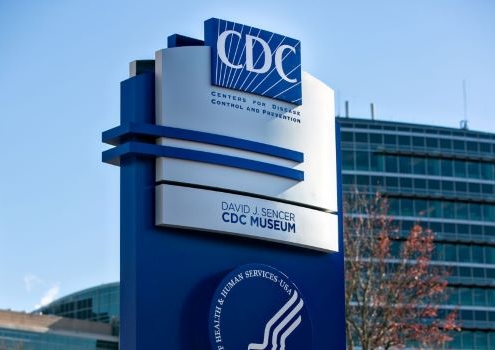CDC Under Fire for Allegedly Hoarding COVID-19 Data
CDC Under Fire for Allegedly Hoarding COVID-19 Data
The U.S. Centers for Disease Control and Prevention is under fire for failing to publish large swaths of hospitalization data related to the COVID-19 pandemic that the organization has collected but failed to make public.
First reported by The New York Times, the CDC hospitalization data is broken down by age, race and vaccination status. Two weeks ago, the government agency published data on the efficacy of booster shots in adults younger than 65. However, the Times reported that the CDC neglected to include data for individuals ages 18 to 49. The data showed that that group was least likely to benefit from COVID-19 vaccine boosters because they were already well-protected by the first two doses.
According to the Times, without the available data from the individuals ages 18 to 49, experts who advise the government have had to rely on data from Israel to make recommendations for boosters. Paul Offit, M.D., a vaccine expert and adviser to the Food and Drug Administration, told the Times the data is considered unreliable for the United States, considering the different definitions of severe illness that Israel and the U.S. health agencies use.
The criticisms aimed at the CDC point out that, although the agency has collected massive amounts of information related to COVID-19 infections, it has not published the data. Citing individuals familiar with the CDC matter, the Times noted that much of the withheld information could help state and local public health officials. Data on age and race can help public health officials identify the populations at highest risk of severe infection, while detailed information on hospitalization rates for COVID-19 patients, regardless of age, can provide more information on who may need a booster shot.
Additionally, the Times noted that wastewater data collected from communities could also provide insights into potential viral outbreaks and emerging variants of concern. The report shows that the CDC only recently began to provide more frequent updates of wastewater data, while some states and local governments have been providing that data regularly since the beginning of the pandemic.
In multiple statements to the Times, the CDC said it withheld publication of the data because “it was not yet ready for primetime.” Spokesperson Kristen Nordlund said the agency wanted to ensure the data it published was accurate and actionable so that the information is less likely to be misinterpreted.
However, Daniel Jernigan, M.D., the agency’s deputy director for public health science and surveillance, told the Times that the massive amounts of data on the pandemic that CDC was rapidly gathering exposed a weakness in the agency’s data systems. The Times reported those systems at the CDC, as well as at state levels, are “outmoded and not up to handling large volumes of data.” Jernigan said CDC scientists are trying to modernize the systems.
“We want better, faster data that can lead to decision making and actions at all levels of public health, that can help us eliminate the lag in data that has held us back,” Jernigan told the Times.
According to Nordlund, the CDC has received more than $1 billion to modernize its systems, which may help pick up the pace.
In addition to outmoded systems, the CDC is also a victim of bureaucracy. Multiple divisions within the agency have to give the green light before data can be made public. CDC officials must notify the Department of Health and Human Services and the White House of the data it releases, creating additional delays due to the political nature of the agencies involved.
The sample size of the data has also been an issue. Nordland told the Times that the collected data represents only 10% of the population of the U.S. That’s the same amount of sample size the CDC has used for tracking influenza, but with the nature of the pandemic and the call for vaccination, there were concerns about the data being twisted in the volatile political storm that has surrounded mass vaccination efforts.
BioSpace source:
https://www.biospace.com/article/cdc-under-fire-for-hoarding-covid-19-data




